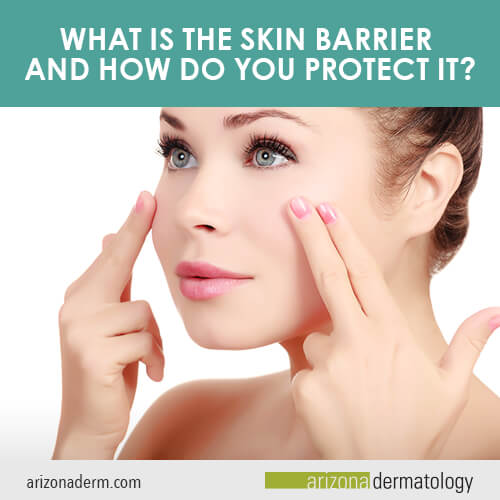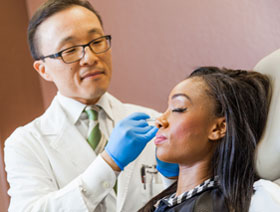 You can avoid many skin problems and have healthier skin overall if you do one thing— protect your skin barrier!
You can avoid many skin problems and have healthier skin overall if you do one thing— protect your skin barrier!
What is the skin barrier?
Maybe you have heard of the skin barrier and maybe you haven’t. Your skin barrier, also called the stratum corneum, is the outermost layer of your skin that acts like a suit of armor, defending your body from environmental threats while also maintaining its critical water balance.
Made up of tough older skin cells held together by lipids, the skin barrier is often described as a “brick wall” rather than a suit of armor, and it’s is a formidable defense. Without it, bacteria, viruses and toxins could easily penetrate your skin and cause illness or infection. You would also dehydrate quite quickly without your skin barrier to hold water inside your body.
How do I know if my skin barrier is healthy?
A healthy skin barrier is well hydrated, moisturized, flexible and resilient. It is better able to repel environmental stresses and maintains a youthful look. A weakened skin barrier has a more difficult time holding in moisture. It may have breaks or thinning that allow irritants or pathogens in, and it is prone to premature aging.
Look for the following signs to know if your skin barrier needs a little TLC:
- Dry, scaly skin
- Rough patches
- Discoloration
- Itchiness
- Acne
- Skin infections
- Fine lines and wrinkles
What does pH have to do with skin health?
You may have heard about pH affecting skin. There is a thin film on the outermost layer of the skin barrier composed of a mixture of oil from your oil glands and amino acids from sweat. Combined with a normal microbiome, this film (sometimes called the “acid mantle”) helps keep moisture in and pathogens and pollution out. The acid mantle is slightly acidic with a healthy pH of 5.5. The lower pH helps it do its job of repelling bacteria and other “invaders.”
You can help keep your skin barrier healthy by using skin care products that maintain a slightly lower pH. Harsh cleansers tend to make skin more alkaline, disrupting the pH of the acid mantle and making skin more susceptible to damage. An out-of-balance skin microbiome can also contribute to inflammatory skin disorders like psoriasis, eczema, and acne.
5 ways to protect the skin barrier
Want to keep your skin barrier at its best? Here are some dermatologist-recommended ways to do that:
Use the right cleanser. Use a mild cleanser free of harsh chemicals and fragrances. Not all products advertise their pH, but if they do, make sure the pH is close to the skin’s natural pH of 5.5 and definitely avoid anything over 7. Steer clear of cleansers with granules or other abrasives on your face and neck. Anything with alcohol is not recommended. If your face feels “tight” or “squeaky clean” afterwards, the product is probably too alkaline.
When in doubt, ask your dermatologist, especially if you have a skin condition like eczema, rosacea, or acne. Your doctor will be able to recommend the best products for you based on your skin type.
Keep skin moisturized. The best moisturizers are occlusive moisturizers, meaning they leave a thin film on top of your skin that helps hold moisture in. Petrolatum is an inexpensive and highly effective occlusive moisturizer that can keep as much as 99% of moisture from escaping.
Another good choice are humectants, which draw water from around themselves to bind to the skin barrier. Ingredients like hyaluronic acid, glycerin and snow mushroom have highly hydrating qualities. And don’t forget… drinking plenty of water helps keep skin hydrated, too.
Go for antioxidants. Including antioxidants in your diet and your skin care products can help protect your skin barrier. Antioxidants neutralize the free radicals that cause oxidative damage in the body and visible signs of aging. Antioxidants that are good for your skin include Vitamin C, Vitamin E, ferulic acid, niacinamide, Coenzyme Q10, Retinol, curcumin and botanical extracts. We also recommend you use an antioxidant serum under your sunscreen. Here’s why. And, speaking of sunscreen…
Use sunscreen every day. One of the worst environmental threats to your skin is ultraviolet radiation. Protect yourself from it with a daily sunscreen of SPF 30 or greater no matter the weather. You can further protect yourself by wearing protective clothing and avoiding sun exposure during the peak hours of 10am and 4pm.
Now that you know the importance of your skin barrier, we hope you’ll take care of this underappreciated aspect of your health. After all, without our skin barrier, we wouldn’t be here!


